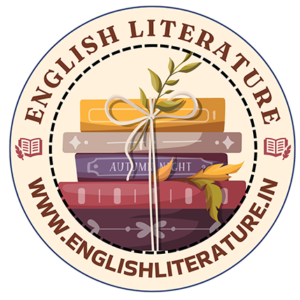The Art of English Composition and Literature
Introduction
English composition and literature are vital elements of the English language arts curriculum, each playing a significant role in shaping effective communicators and critical thinkers. This blog post will explore the importance of both fields, their interconnection, and practical tips to excel in writing and literary analysis.
What is English Composition?
English composition focuses on the skills and processes involved in crafting various forms of writing, from essays and research papers to creative pieces. It emphasizes clarity, coherence, and persuasive techniques, making it essential for academic success and effective communication in everyday life.
Key Elements of English Composition
- Thesis Development: Crafting a strong, arguable thesis statement serves as the backbone of any essay, guiding the direction of the writing.
- Structure and Organization: Mastering how to logically organize ideas enhances readability and helps convey arguments effectively.
- Research Skills: Learning to locate, evaluate, and integrate research into your writing bolsters credibility and depth.
- Revision and Editing: Embracing the revision process is crucial for refining ideas, improving clarity, and enhancing overall style.
What is English Literature?
English literature encompasses the study of written works in the English language, spanning poetry, drama, novels, and essays. This field involves analyzing themes, characters, and the socio-historical context of texts, fostering a deeper understanding of the human experience.
Key Themes in English Literature
- Identity and Self-Discovery: Many literary works delve into the complexities of identity formation and personal growth, inviting readers to reflect on their own journeys.
- Conflict and Resolution: Central to narratives, conflict drives both plot development and character evolution, providing a lens through which to examine human nature.
- Societal Critique: Literature often serves as a mirror to society, addressing issues like inequality, morality, and cultural norms, challenging readers to think critically about their own contexts.
The Interplay Between Composition and Literature
The relationship between composition and literature is symbiotic. Engaging with diverse literary texts can inspire writing styles, enrich vocabulary, and introduce various narrative techniques. Writing about literature enhances comprehension and cultivates critical analysis, making both areas essential for a well-rounded education.
Tips for Excelling in English Composition
- Practice Regularly: Dedicate time to write daily, whether through journaling, blogging, or tackling writing prompts. Regular practice builds confidence and skill.
- Read Widely: Exposure to various genres and writing styles enhances your writing and analytical abilities. Pay attention to how different authors construct their arguments.
- Seek Feedback: Share your work with peers, teachers, or writing centers to receive constructive criticism. Different perspectives can lead to significant improvements.
- Focus on Revision: Treat revision as an opportunity to refine your ideas. Read your work aloud, and look for areas where clarity can be improved.
Tips for Excelling in English Literature
- Read Actively: Annotate texts, highlight key passages, and jot down your thoughts to engage more deeply with the material. Ask questions about character motivations and themes.
- Participate in Discussions: Join book clubs or literature classes to gain diverse perspectives. Discussing texts with others can illuminate different interpretations.
- Explore Literary Criticism: Delve into critical analyses to enhance your understanding of themes and techniques. Familiarize yourself with various schools of thought, such as feminism or post-colonialism.
- Write Analytical Essays: Practice writing essays that explore literary elements, supporting your ideas with textual evidence. Focus on developing a clear argument that engages with the text.
The Benefits of Studying Composition and Literature
- Enhanced Communication Skills: Mastering both writing and analytical skills is invaluable in any field, fostering effective communication.
- Critical Thinking: Both disciplines encourage a critical examination of ideas, texts, and societal norms, promoting a deeper understanding of the world.
- Cultural Awareness: Literature exposes students to diverse perspectives and experiences, enhancing empathy and fostering a global outlook.
Conclusion
The study of English composition and literature is essential for developing a comprehensive understanding of language and communication. By honing writing skills and engaging with literary texts, students can cultivate critical thinking, creativity, and a profound appreciation for the art of storytelling. Embrace this journey, as it enriches not only your academic life but also your personal growth and worldview.
FAQs
1. What is the difference between composition and literature? Composition focuses on writing skills and the processes involved in creating texts, while literature involves analyzing and interpreting written works.
2. How can I improve my writing skills? Practice regularly, seek feedback, and study the works of accomplished writers to enhance your skills.
3. What types of literature will I study? You may encounter a variety of genres, including poetry, drama, novels, and essays, spanning different time periods and cultural contexts.
4. How important is reading in improving writing? Reading widely is crucial; it exposes you to different styles, enriches your vocabulary, and inspires your own writing.
5. Can studying literature help with writing essays? Absolutely! Analyzing literature provides insights into structure, argumentation, and the effective use of evidence, all essential for crafting strong essays.
